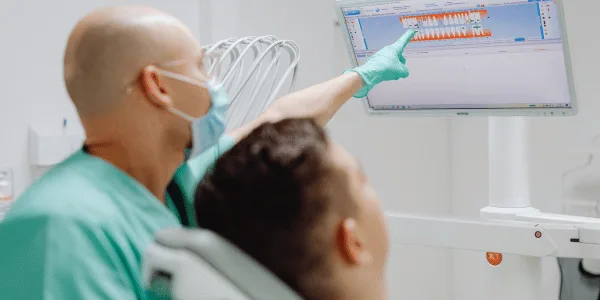The dental industry is changing fast, and new business models are reshaping the way practices run. Two terms you’ll often hear are DSO (Dental Service Organization) and DPO (Dental Provider Organization). They may sound alike, but they represent very different approaches to how dental care is supported and delivered.
Whether you’re a dentist considering one of these models or just curious about the differences, this article will walk you through what each means and how they impact the dental world.
What is a Dental Service Organization (DSO)?
A Dental Support Organization partners with practices to handle the business side of dentistry. DSOs are usually backed by private equity or corporate entities and operate under centralized ownership. This model allows them to standardize systems across multiple practices and take advantage of economies of scale.
Key functions DSOs typically handle include:
-
Recruiting and managing staff
-
Payroll, benefits, and HR support
-
Vendor negotiations and supply purchasing
-
Marketing and patient acquisition
-
Compliance, legal, and regulatory support
Example:
Dr. Lee owns a busy practice but feels bogged down by payroll and insurance claims. By affiliating with a DSO, those tasks are handled by a centralized team. Dr. Lee still provides all clinical care but gains efficiency, reduced stress, and access to better purchasing power.
What is a Dental Provider Organization (DPO)?
A Dental Practice Organization provides similar non-clinical support but is structured differently. Instead of being corporate-owned, DPOs are usually formed by groups of dental practitioners who collaborate while retaining ownership of their individual practices. This decentralized model emphasizes collaboration and clinical autonomy.
Key characteristics of DPOs include:
-
Shared administrative services with local flexibility
-
Greater input from practice owners on management decisions
-
Profits distributed among participating dentists
-
Emphasis on patient outcomes and dentist-driven culture
Example scenario:
Dr. Patel joins a DPO where several independent practices pool resources for marketing, HR, and vendor contracts. He maintains ownership of his office and full say in clinical decisions, while benefiting from shared business support and reduced costs.
DSO vs. DPO: The Core Differences
Although both DSOs and DPOs provide business support, they differ in some important ways.
1. Ownership and Control
-
DSO: Centralized ownership, often private equity-backed.
-
DPO: Decentralized ownership among participating dentists.
2. Clinical Autonomy
-
DSO: Standardized protocols that create efficiency but may limit flexibility.
-
DPO: Promotes more autonomy and patient-centered decision-making.
3. Financial Structure
-
DSO: Profit-sharing, with revenue retained by the organization in exchange for services.
-
DPO: Collaborative, with profits shared among member dentists.
4. Management Style
-
DSO: Corporate-driven with uniform systems and growth strategies.
-
DPO: Collaborative, with more input from local practices.
Why Dentists Choose DSOs
Dentists often affiliate with DSOs for relief from the challenges of running a business. Benefits include:
-
Operational efficiency: Centralized systems make administration easier.
-
Cost savings: Bulk purchasing reduces overhead.
-
Scalability: DSOs often provide capital support for expansion.
-
Reduced stress: Dentists focus on clinical care while the business is handled.
Why Dentists Choose DPOs
Dentists interested in retaining ownership while gaining support may lean toward a DPO. Advantages include:
-
Clinical autonomy: More flexibility in treatment decisions.
-
Shared resources: Practices pool services like HR and marketing.
-
Collaborative growth: Profits are distributed among member dentists.
-
Practice culture: Local decision-making creates a personalized environment.
How to Decide Between DSO and DPO
The right choice depends on your goals and your vision for your practice.
-
Consider a DSO if:
-
You want to scale your practice quickly.
-
You prefer standardized systems and less administrative responsibility.
-
You’re open to centralized control in exchange for business efficiency.
-
-
Consider a DPO if:
-
You want to keep ownership of your practice.
-
You value autonomy in clinical and management decisions.
-
You prefer a collaborative, dentist-driven model.
-
Both Dental Support Organizations (DSOs) and Dental Practice Organizations (DPOs) offer valuable support for today’s dental practices. DSOs emphasize standardization and scalability, while DPOs prioritize autonomy and collaboration.
When evaluating your choices, look past the label and focus on what the organization truly offers. Ownership structure, management style, and clinical freedom should all factor into your decision. Ultimately, the best model is the one that aligns with your long-term goals and the culture you want for your practice.







